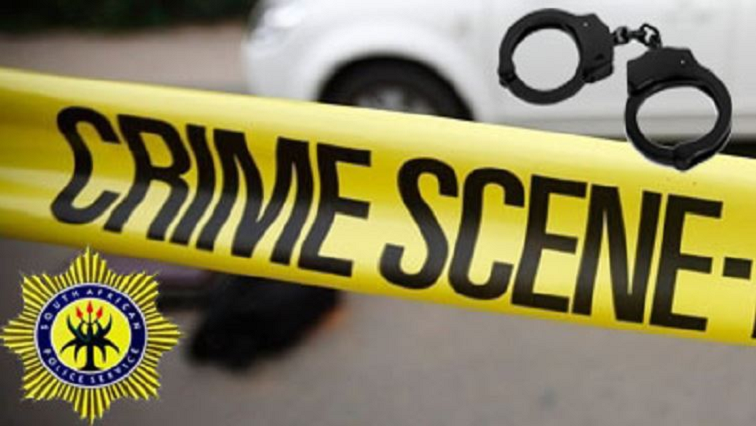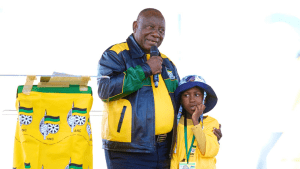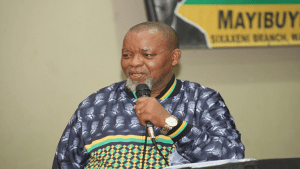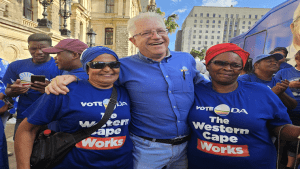The African National Congress (ANC) Secretary General Fikile Mbalula has strongly condemned the ongoing killing of councillors and other politicians in KwaZulu-Natal.
Mbalula has been speaking during the party’s manifesto review in Pietermaritzburg. Over 16 councillors have been killed in the province since the 2021 municipal elections.
The killing of political leaders and councillors in KwaZulu-Natal continues unabated. This is despite the establishment of the Moerane Commission in 2016 which investigated the cause of political killings in the province dating back to 2011.
The Commission heard evidence from over 60 witnesses. It made a number of recommendations, including that political parties take responsibility for the violent competition between their members for political positions and power.
The blood-curdling cries of the grief-stricken women from the village of Shobashobane in 1995 on the KwaZulu-Natal South Coast as they watched the coffins of their loved ones, friends, and neighbours being carried at their mass funeral.
A week earlier, on Christmas Day, death had descended on this small and quiet, lush village. 19 people were killed, and scores were injured. It was described as one of the worst massacres in post-apartheid South Africa.
The late former President Nelson Mandela, reflecting on the massacre three years later, said,” It reminds us of how conflict and tension only worsened the poverty that gripped the area.”
Political leaders at the time vowed to work for peace.
Ethnic conflict and political violence were the root causes of the violence in KwaZulu-Natal in the 1980s and 1990s. Fast forward to recent years, and the violence appears to have taken a different form, with targeted hits on people in political leadership positions at the local government level.
Concern over spike in murders, attacks on politicians in KZN:
The period between 2011 and 2016 saw political assassinations continue unabated, and as a result, pressure was mounting on the government to act, as most of those killed were leaders of the ANC.
In October 2016, the then KZN Premier Willies Mchunu established the Moerane Commission to investigate the root causes of these attacks. The Commission found, amongst other things, that the barriers of entry to becoming a councillor are extremely low, and the political positions of councillors create opportunities for access to resources, which can lead to corruption.
Two years later, in 2018, President Cyril Ramaphosa set up a task team to investigate political killings. Despite even these reinforced efforts, in September, the latest victim, Mzwandile Shandu, was killed in while in hiding. He was a ward councillor at the Mkhambathini Local Municipality.
Now, some political parties in KwaZulu-Natal say the failure to implement the recommendations of the Moerane Commission is not boding well for ending these deaths.
The DA leader in KwaZulu-Natal, Francois Rodgers, says, “Part of the problem is that as the state, we have let people down. Crime, no matter what crime you are referring to, whether it is murder or rape or robberies, is out of control, and when people feel vulnerable, voters and residents become despondent. Then you go to an election, and they will say, Does it matter whether I vote for A, B, or C nothing is going to change.”
EFF provincial chairperson Mongezi Twala says some of its councillors have also received death threats in recent months.
“Almost every meeting that we convene as the EFF, surely there will be a report of certain people or certain public representatives of the EFF who get death threats for doing the work that they are being appointed to do or deployed to do, to service the community at large. We had one of the councillors in Zululand who was followed by some dubious characters just because he was speaking on the issue of water tankers that were charging the municipality lucrative amounts of money, and soon after that he received death threats.”
The IFP chairperson in KwaZulu-Natal, Thami Ntuli, has challenged Police Minister Bheki Cele to treat the response to politically related killings as when a police officer is killed. In the latter instance, a 72-hour activation plan to trace and arrest the suspects is activated immediately.
“The challenge that we are faced with as we see the sustenance of the political killings is the issue of the security cluster. I believe that they are doing a good job, but there is a lot that they need to do. The pronouncement by the Minister of Police, honorable Bheki Cele, that whenever a police officer is killed, which will make a time say within a particular hour, the arrest should have been made, and you find that indeed it will happen why such is not happening when it comes to the political killings because political killings in the province of KwaZulu-Natal are not only confined to those who are serving government,” says Ntuli.
However, ANC provincial secretary Bheki Mtolo says the government has acted on some of the Commission’s recommendations.
“After the Moerane Commission, Bheki Cele set up a Task Team, and that Task Team has made more than two hundred arrests and some convictions. One guy from eThekwini, I think, two weeks ago, was sentenced to life imprisonment for killing a councillor. When somebody gets killed who is profiled for example Magaqa, the media will go there and publicize the case, and then an arrest will be made, but when the case is going on, the media is focusing somewhere else, but it appears as if nothing is done. Moerane has helped us put together that Multi-Discipline Task Team that has made arrests and has also made convictions on political killings,” says Mtolo.
Seven years later, it begs to be seen how long the recommendations of the Moerane Commission will remain a mere document or whether KwaZulu-Natal will continue to lose its political leaders.






